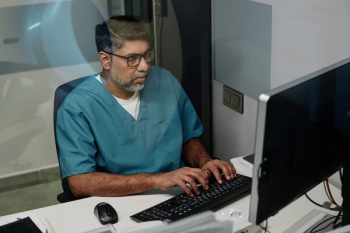
What did we learn from COVID-19?
Five major themes for what the pandemic has taught us.
I used to be an avid watcher of the animated series Family Guy. In one of the earlier episodes, Stewie (an evil-genius toddler, for those unfamiliar) is at a baseball game and receives a foul ball. He turns to an older kid sitting next to him and offers to trade the ball for a bat the other kid is holding. Other kid agrees, they make the swap, and Stewie uses the bat to smack the kid, retrieving the ball in the process. Then, he smirkingly asks the now-smarting kid what he learned from the experience.
Maybe it’s out of a sense of cosmic justice (“everything happens for a reason”), or just making lemonade out of life’s lemons, but a lot of folks cling to the notion that misfortune comes with lessons to be learned. Perhaps how to avoid recurrence of the unwanted events, or to better withstand them if and when they turn up again. Yes, it’s a shame I blew my finger off with fireworks, lost a bundle in the stock-market, or permanently misplaced my car keys. But, now, I’m wiser or otherwise better off as result of the experience.
I find that many of these lessons learned are things that people knew darned well before their untoward events occurred. You don’t need to be minus one digit to know that fireworks are dangerous, for instance. And, most people who ultimately lose things like their car keys, glasses, etc., have a background of temporarily misplacing more than a few items-plenty of warning episodes that could have prompted a change in behavior. In such cases, it’s not so much a matter of learning new lessons as respecting those already known and remembering to abide by them.
A minority of the lessons people tell themselves they’ve learned are of another order entirely, regarding misfortunes that they had no prayer of avoiding or even mitigating. And, they will be just as vulnerable to them in the future. Still, whether they’re genuinely wrong or are determined to wrap themselves in a comfortable fiction of security, they repeat this to themselves or others around them.
So, here we are, slowly emerging from at least the first round of widespread COVID-19 infections, and the urge is strong to identify things that we’re learned from our ordeal. Or, for those more inclined to fault-finding, to point out what others should have learned, but didn’t, or should’ve known to begin with.
In that spirit, I offer up some major themes I have seen in the past few weeks:
- It’s the status, not static, quo. The more you take for granted as “the way things are,” the more easily you’ll be disturbed when they change. It doesn’t take a worldwide pandemic and government-mandated shutdowns. A surprising proportion of the population is thrown off-balance with even small differences from one year to the next, or even over a matter of days. Even if you, personally, are flexible enough to roll with the punches, it’s amazing how much you can be dragged down by the association with others less adaptable.
- Live well within your means. Paycheck-to-paycheck folks had a very large safety-net when the government moved tax deadlines, mandated forbearance on loans, such as mortgages, and distributed relief funds in various shapes and sizes. If any of that hadn’t happened (for instance, in case of personal rather than societal crisis), imagine suddenly having no income while still having your usual financial obligations. Your ability to weather the storm would depend on how much “cushion” you had in the form of savings, accessible retirement-accounts, etc. Remember the ant/grasshopper fable? Be like the ant.
- That goes for your practice (or other business), too. Same deal. If you’ve been operating with no slack in your system, no “rainy day” contingency-plans, it won’t take much to go under. Meanwhile, if you are able to stay afloat while some of your less-prepared competitors go belly-up, you might just emerge stronger than before. At the very least, you’ll look better than they do to prospective clients and folks looking to join your team.
- Having more free time might not have been what was holding you back. As I wrote in a column some weeks ago, you probably had a whole lot more spare time than usual during the past couple of months. How many items did you cross off of your “I’d do it if I ever had the time” list? Maybe you were more deficient in motive than opportunity. Here’s your chance to acknowledge and do something about that. Or…
- Look how much you did get done, once your schedule was involuntarily cleared. Now’s your chance-before you go back to your regular routine and start letting stuff moulder away on a back-burner again. Lock in the progress you made by carving out space for important activities and tasks in your schedule during the coming weeks and months. Look at what other dross is less-valuably taking up space in your day, and give some of that the heave-ho.
Newsletter
Stay at the forefront of radiology with the Diagnostic Imaging newsletter, delivering the latest news, clinical insights, and imaging advancements for today’s radiologists.












